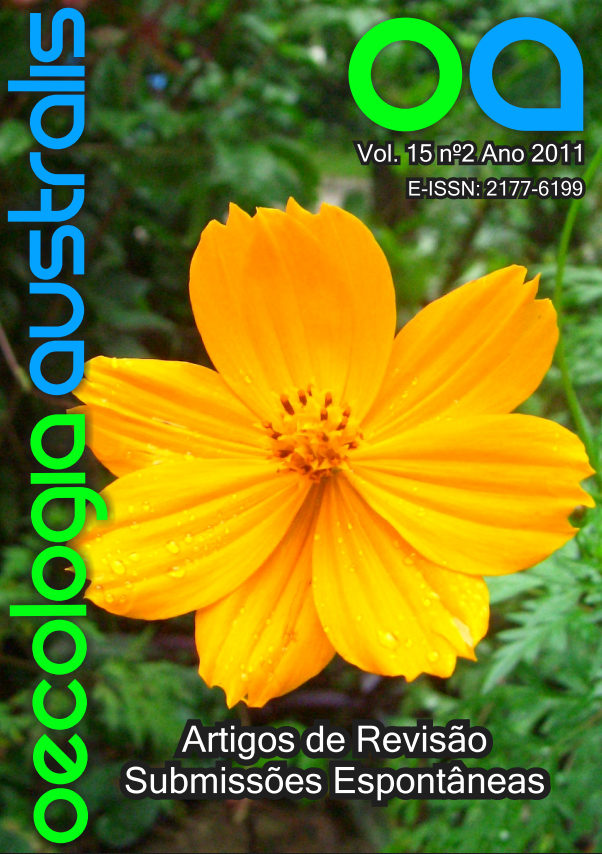ECOLOGIA QUÍMICA MARINHA: ORIGEM, EVOLUÇÃO E PERSPECTIVAS NO BRASIL
Keywords:
ecologia química marinha, interações químicas, defesas químicas, alelopatia.Abstract
MARINE CHEMICAL ECOLOGY: ORIGIN, DEVELOPMENT AND PERSPECTIVES IN BRAZIL. This report reviewed the information about development of marine chemical ecology in Brazil since its origin until May 2011 through analysis of scientific publications and professional formation at different levels. Basic macroalgal studies were predominant, mainly those studies focused on the effect of crude extracts and some pure compounds evaluated as chemical defenses against consumers. The macroalgal approaches also constitute important contributions related to structure and function, intra-population variation, storage and transport of chemical defenses. The number of invertebrate chemical ecology studies although small, verified the presence and activity of secondary metabolites, chemical cues for hosts to associated and chemical defenses in exotic species. Brazilian marine chemical ecology has evolved in accordance to this science in the world, as mostly papers were published in scientific journals of broad accessing. Despite the number of professionals has increased recently, the development of national marine chemical ecology remains slow due to reduced number of PhD formed and that could be head and spread new centers for research and professional formation. Considering the contribution of environmental and genetic factors for the production of chemical cues, the expansion of researches and professional formation, essentially PhDs, must be the basis to understand the pattern of abundance and action of secondary metabolites and their roles in marine community structure.
Keywords: Marine chemical ecology; chemical interactions; chemical defenses; alellopathy.


